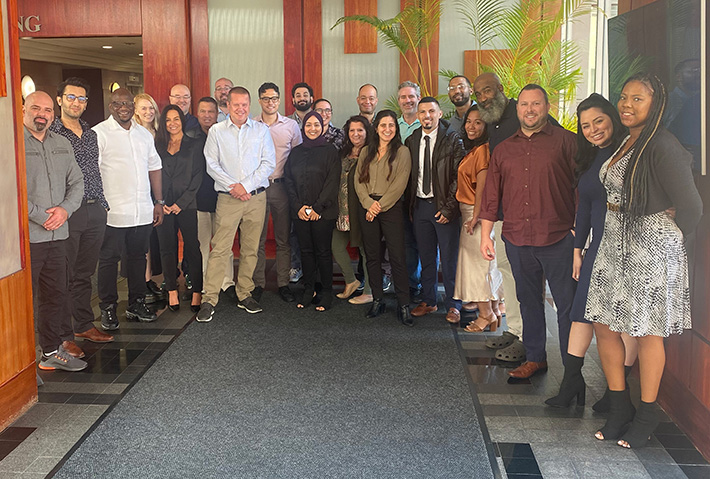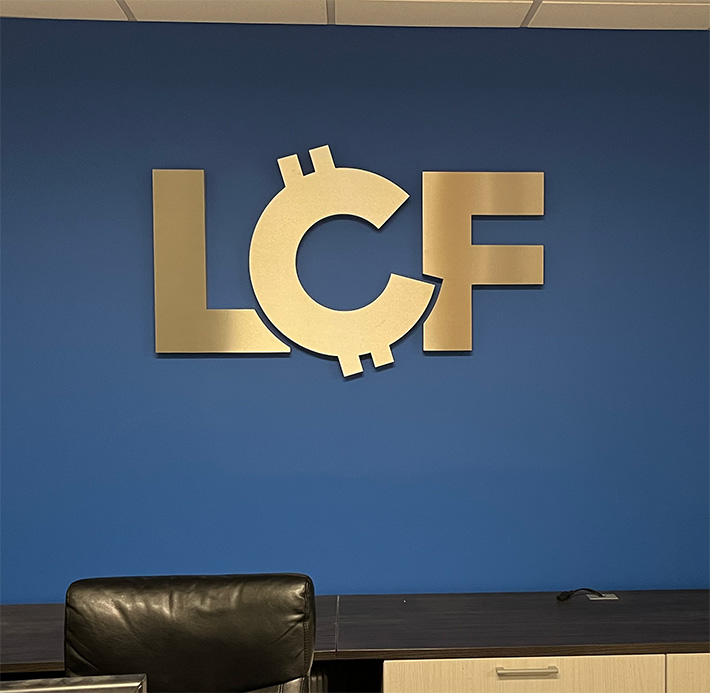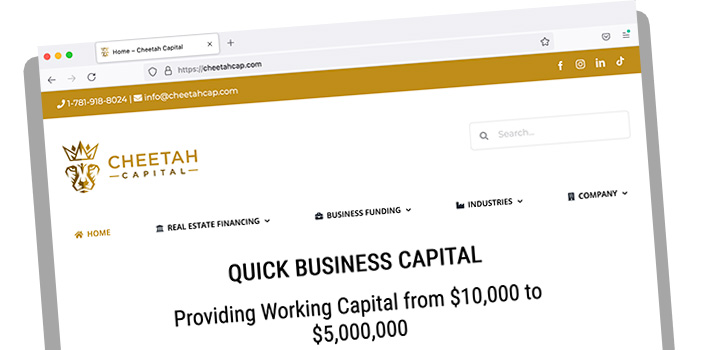Archive for 2023
Massachusetts Legislators Propose Small Business Lending Data Collection
October 16, 2023 Legislators in Massachusetts are proposing a set of requirements designed to monitor small business lending in a manner that is similar to the CFPB.
Legislators in Massachusetts are proposing a set of requirements designed to monitor small business lending in a manner that is similar to the CFPB.
In a set of parallel bills that mostly say the same thing (S.234, S.1986 H.2997), they call for the Division of Banks to require “the collection of small business lending data from all lenders, including online lenders, and small businesses on an annual basis.”
It also said that the regulations would include:
(1) the establishment of a central depository of the collection and analysis of small business lending data, to include, but not be limited to the following: lending and banking institutions’ average annual percent rates, default rates, and fees.
(2) procedures for the solicitation and acceptance of reports regarding small businesses’ incidents of predatory lending practices.
(3) procedures for assessing the credibility and accuracy of reports of small business lending data from lending institutions.
Although this was proposed back in February it has since shifted back into the conversation in the state. The next hearing on the bill will take place on October 19. It can be found under the category of “An Act to promote inclusive entrepreneurship and economic justice.”
NY Appellate Division Rules One Funder’s Contract Crossed Loan Threshold
October 12, 2023While New York’s Appellate Division has previously decided what’s not usury when it comes to MCA transactions, the Second Department has now ruled what is.
On Wednesday, the Court issued its decision in Crystal Springs Capital, Inc v. Big Thicket Coin, LLC et al, a case that had otherwise started out as a routine breach of contract action related to the purchase of future receivables in the New York Supreme Court back in September of 2020. When defendants never appeared, the plaintiff obtained a default judgment eleven months later. That sparked a response from the defendants who then sought to vacate it on several grounds, including by arguing that the underlying agreement was really a criminally usurious loan. The Court rejected the argument for several reasons, citing that the “reconciliation language in the Agreement is nonillusory” and stating plainly that “a merchant cash advance agreement is not a loan and therefore its terms are not usurious.” Vacatur denied. Defendants appealed.
Given the history in New York (1st Dept, 4th Dept, etc.), the case was hardly news, until now.
In the new Decision & Order, the Court said that “the defendants established that the agreement constituted a criminally usurious loan.” In support of that outcome, the Court said that the plaintiff was “under no obligation” to reconcile the payments and that the full uncollected purchased amount plus all fees were due in default even if the business declared bankruptcy. (View contract at issue here)
“Together, these terms established that the agreement was a loan, pursuant to which repayment was absolute, rather than a purchase of future receipts under which repayment was contingent upon the Big Thicket defendants’ actual sales,” the Court said. “The plaintiff does not dispute that the agreement effected an annual interest rate exceeding the criminally usurious threshold of 25%.”
Meta’s Invoice Factoring Business Paused Indefinitely
October 11, 2023 Meta has apparently exited the small business financing space in the US after a short stint. Meta’s original invoice factoring business, which debuted in 2021 as Facebook Invoice Fast Track, updated its landing page to say that the program has been “paused indefinitely.” Meta offered a pretty sweet deal, only a fee of 1% of the A/R. The condition was that it was only open to minorities, females, veterans, LGBTQ+ or someone with a certified disability. Meta sunset the program in March 2023 but did not elaborate as to why.
Meta has apparently exited the small business financing space in the US after a short stint. Meta’s original invoice factoring business, which debuted in 2021 as Facebook Invoice Fast Track, updated its landing page to say that the program has been “paused indefinitely.” Meta offered a pretty sweet deal, only a fee of 1% of the A/R. The condition was that it was only open to minorities, females, veterans, LGBTQ+ or someone with a certified disability. Meta sunset the program in March 2023 but did not elaborate as to why.
Facebook’s Small Business Loan Resource center has also been removed. At the time of its launch in 2021, it had partnered up with Connect2Capital.
The abandoned efforts were not exactly unchartered territory for Meta. In India, the company brokers business loans that carry interest rates from 16%-23%. When it launched this in 2021, it was suggested that this would expand to more countries when it said “India was the first country in which we launched this initiative.”
Sales Slump? There’s Ways to Overcome It
October 9, 2023 From beginning as an entry level rep seven years ago to his current role as the Director of Sales and Operations at Tip Top Capital, Sergio Zamudio has gained a deep appreciation for the importance of maintaining motivation, especially during slower weeks. A slump can get even a good salesperson down so he encourages a shift in perspective. Instead of focusing on the number of contacts made in a day, one should evaluate how many of those contacts can become qualified prospects.
From beginning as an entry level rep seven years ago to his current role as the Director of Sales and Operations at Tip Top Capital, Sergio Zamudio has gained a deep appreciation for the importance of maintaining motivation, especially during slower weeks. A slump can get even a good salesperson down so he encourages a shift in perspective. Instead of focusing on the number of contacts made in a day, one should evaluate how many of those contacts can become qualified prospects.
“It’s kind of like the marble theory,” Zamudio said, “if I throw a certain amount of marbles in a jar, how often do I come across a blue marble? Well, as long as I keep digging, and I keep looking, I’m going to get something.”
To inspire the team, Tip Top offers various incentives. The top producers in the office are recognized with a monthly trophy. And weekly rewards are given out, which can range from tickets to a Giants game or seats at a Broadway show. The underlying idea is to encourage the team to focus on what they can control, such as striving for another sale, rather than dwelling on tough days beyond their control.
“What we do to try to get people motivated and going is that we like to do bonus incentives,” said Zamudio, “We do this thing called a monthly trophy. Everybody’s very goal oriented and tries to beat one another to try to win the trophy, which goes to the top producers in the office.”
For Gerald Watson, CEO of the Watson Group, 25 years of experience has taught him a few things. When a week is slow, sales reps should “look at their existing book of business, whether it’s people they’ve done fundings for or even prospects,” he said. His advice is that reps should engage them in discussions about other financing products they might require. “Same customer, new products, that’s a real fundamental business strategy,” Watson said.
If all else fails, get accustomed to asking for referrals. Ending an interaction with something as simple as, “’Oh by the way, do you know anyone that…’” can go a long way,” Watson explained. “If there’s no opportunities with existing clients, you always want to get into the habit of asking for referrals.”
Will Murphy, COO at Everlasting Capital, is no stranger to a slump. The company started with one back in 2012 when his partner was making 400 calls a day for three months with no success. Finally, after all that, a deal got funded and it encouraged them to keep at it. While maintaining determination is certainly woven in to the fabric of their sales culture, Murphy also cited the importance of checking in on clients constantly. “We have a lot of trade secrets that we’ve learned over the years that we’ve implemented into play to (1) stay in front of the client, (2) stay in front of renewals, and (3) provide the best customer service that we possibly can because you got to stay relevant in this industry, or you’ll pretty much be forgotten,” said Murphy.
From A to D: How LCF is Aiming High
October 9, 2023
Robert Kleiber was a banker. He started his career at Citi in 2000 and rose up the ranks to become Head of Small Business Banking for North America by 2014. By then times were changing and disruptive fintech technology was becoming the talk of the town. Kleiber saw it firsthand and wanted in. So, he made the daring move to leave Citi in 2016 to go make his mark in the rapidly evolving world of small business finance.
He first served as the CFO of an NYC-based fintech company until another unique opportunity presented itself. It was at a growing company on Long Island that he hadn’t really known that much about previously. The way Kleiber tells it to deBanked, the company had a way of communicating the scale of its aspirations that got him really excited. He went for it. The company was called The LCF Group, a revenue-based financing provider that was headquartered in New Hyde Park. Today, Kleiber is the CFO & COO of the LCF Group. Founded in 2011, the company has solidified itself as a stalwart in what folks often call the “C & D paper” space.
“The goal,” Kleiber reveals, “is to be largest subprime funder by the end of next year.”
That’s a lofty ambition. In an industry oft-filled with big talk and rosy projections, LCF’s trajectory actually appears to support this possible outcome. Between in-office and remote, the company already has approximately 200 employees and it’s been on a hot streak of recruiting talent. Most compelling of all, however, is that LCF recently acquired select strategic assets and licensing rights to a well-regarded name in the industry, Reliant Funding. At the time of the announcement, the company said that “This strategic move not only enhances LCF’s portfolio but also empowers us to offer merchant funding through both ISO partners and directly under the LCF and Reliant brands.”
 “On the direct side, our plan is to build up Reliant on originations […] and get them back to where they were before,” Kleiber says.
“On the direct side, our plan is to build up Reliant on originations […] and get them back to where they were before,” Kleiber says.
In that regard, LCF fully intends to leverage the Reliant name back into a powerhouse funding arm in the prime paper arena, first by going direct to merchant and then by taking on ISO/referral business for it. Between its two brands then, the company is on its way to covering the gamut from A – D. Unsurprisingly, all of this activity requires strong technology to make everything work. Kleiber says that they have 20-25 developers constantly building out their systems, which they rely on to not only increase the speed in which they can approve deals but also to achieve maximum compliance.
“We take compliance super serious,” Kleiber says. “Our differentiator is transparency, operating above board.”
LCF’s new Director of Sales, Jason Redding, who previously spent ten years at OnDeck, echoes same. “Even though it’s C & D paper, we’re doing this the correct way,” Redding says. Redding, who experienced the incredible ride at his former employer from startup to IPO and beyond, explains that LCF is giving him a similar feeling of what that journey was like. “Being part of something like that again is something I’m looking forward to,” he says.
And yet when it comes down to product, the company is perfectly content for the time being to focus on what they’re good at, which is revenue-based financing through and through. They’ve determined it’s better to lean in and try to be the best at something rather than try to offer too many different things.
At the LCF office in New Hyde Park, one can find various departments working to carry out the company’s mission. Among the introductions and small talk made during a walkthrough, one line uttered by a veteran member of their team stands out. “In this industry you don’t have to be earth shatteringly different, just operate with honesty, integrity, and transparency, and success will follow.”
This Funding Shop Puts Students on the Phone for College Credit
October 5, 2023 “We figured out the best way is to recruit,” said Khoury.
“We figured out the best way is to recruit,” said Khoury.
Chris Khoury, CEO of Cheetah Capital, isn’t just hiring talent; he’s teaching it. He introduced a funding academy for college students in the summer of 2022. It’s an actual internship program that is specially tailored to recruit and train aspiring brokers and sales reps and teach them everything from the ground up.
Starting in the business three years ago, Khoury eventually went on to establish Cheetah Capital. He recognized the challenges in finding quality hires in the industry and decided to tackle it head-on with the creation of the program.
“[The interns] learn various skills such as cold calling, crafting professional emails, and acclimating to the corporate environment,” said Khoury. “Our program aims to provide valuable real-world experience that complements their academic learning to develop in business, marketing, and communication. They also gain experience understanding the world of financial services.”
The program is a collaboration between Khoury, Jonah Farella (Director of Sales & Business Development), and Joe Zampell (COO). The program is split into three “spots” (Spot 1, 2, & 3), where they each mentor 10-15 students and assess them on a weekly basis. Each student has an individual mentoring session each week and a team meeting every Monday.
Based in Boston, Cheetah Capital partners with local institutions such as UMASS, Boston University, Boston College, and Endicott College. Many of these schools have accredited their students with college credits upon validation from their team but interns are also compensated for their efforts.
“For Fall 2023, we’ve taken a slightly different approach,” said Khoury. “Rather than our usual remote/and in person internships, we’ve partnered with local Boston schools for a fully in-person co-op experience. These students dedicate their full semester to Cheetah Capital, working regular 9-5 hours, immersing themselves in a comprehensive professional environment.”
Chris Bearden, a current intern from Endicott, discovered the program on LinkedIn and secured an interview with Farella. Considering he is required to complete a 32-hour weekly internship in his senior year, Bearden has decided to cut his teeth in business in the world of b2b finance sales. He actually started at Cheetah this past June despite the internship program not officially starting until the fall. The program, he told deBanked, started off with a lot of training and he says it’s prepared him to be able to talk more confidently to business owners and in general. He mused about the “100 different stories” he’s heard daily. “Everyone will tell you something different,” he said.
“The most I’ve made on a sale so far is $8,000 off of one deal,” Bearden shared. “That was really exciting, I can’t really describe the feeling being 22 years old and coming off of a phone call understanding that I just made that much money. But I think one thing that they have taught me at Cheetah Capital is just to keep your head down and kind of keep going…”
Farella, who oversees the program, also started out as an intern himself. As a graduate from Boston College, he was mentored by Khoury and he adapted to the industry quickly. Once he started closing deals and making money he realized, “I’m making more money than I ever have.” Helping the interns in his program at the time later turned into an offer from Khoury on running the program.
“Right now, we cap at around 45-50 [students] and that’s because we only have them for about three months,” said Farella. “But as it grows, and we bring in more managers, what we want to do is kind of offer interns a return offer.”
Offering real-world work experience to students while building up quality employees has felt like a win-win for Cheetah.
“We try to take good well-rounded kids here and teach them what we wish we knew at their age,” said Khoury.
Are Google’s Search Results Getting Worse? Maybe
October 3, 2023 Ever find yourself perplexed by a string of bad Google search results? It might be by design. As a federal antitrust lawsuit against Google heads to trial, prosecutors have filed dozens of exhibits that include eyebrow-raising internal communications about how Search works. Apparently, it’s not all algorithms and data science running the show, but a team of salespeople trying to hit their numbers.
Ever find yourself perplexed by a string of bad Google search results? It might be by design. As a federal antitrust lawsuit against Google heads to trial, prosecutors have filed dozens of exhibits that include eyebrow-raising internal communications about how Search works. Apparently, it’s not all algorithms and data science running the show, but a team of salespeople trying to hit their numbers.
For example, in late 2018 Google rolled out an update that allegedly improved the user search experience while at the same time inadvertently decreasing the number of search queries and ad revenue. What to do? An Ads team exec floated the possibility of rolling back the update and a discussion was had to make Search worse for users just to boost queries and ad clicks.
“The question we are all faced with is how badly do we want to hit our numbers this quarter?” the ad exec said. “We need to make this choice ASAP. I care more about revenue than the average person but think we can all agree that for all of our teams trying to live in high cost areas another $_redacted_ in stock price loss will not be great for morale, not to mention the huge impact on our sales team.”
Though these communications do not conclusively establish anything in terms of how Google ran its business, it’s impossible to avoid wondering if a string of bad results might have less to do with whether or not Google’s algorithm is working and more to do with whether or not a Google sales guy is trying to hit a search query quota so that he can pay his mortgage this month.
 On the flip side, bad results might have nothing to do with ad sales at all, but are rather a consequence of the proliferation of bad websites with misaligned incentives. Google’s 20th employee, Marissa Mayer, who also served as CEO of Yahoo for five years, explained in a podcast last year, for example, that websites themselves are what’s getting worse.
On the flip side, bad results might have nothing to do with ad sales at all, but are rather a consequence of the proliferation of bad websites with misaligned incentives. Google’s 20th employee, Marissa Mayer, who also served as CEO of Yahoo for five years, explained in a podcast last year, for example, that websites themselves are what’s getting worse.
“I think because there’s a lot of economic incentive for misinformation, for clicks, for purchases,” she said. “There’s a lot more fraud on the web today than there was 20 years ago.”
Still, in the Google communications referenced above, it was obvious that Google was faced with balancing user experience with revenue expectations.
“All these little things ultimately add up to retaining Chrome users – if we lose them, we will see far greater [Sales Quantity Variance] loss, and I won’t have any way to get them back,” wrote a Google manager to the Ad team exec.
One’s search experience will surely be impacted even more now as Google is forced to contend with AI personal assistants, a Q&A experience unlike anything that’s ever been seen on the web before. All of which means Google might have to get better at answering your questions if it wants to stay competitive, but not be so good that it hurts morale for the sales team.
Fundfi Secures New Credit Facility
October 2, 2023
Fundfi Merchant Funding LLC, a leading provider of Merchant Cash Advances (MCA), is proud to announce securing their newest credit facility to continue growing its funding portfolio.
The new line of credit, secured through a strategic partnership with Crown Partners LP, exemplifies Fundfi Merchant Funding’s unwavering commitment to supporting small and medium-sized businesses by providing them with accessible and flexible funding solutions.
This substantial financial injection arrives at an opportune moment for Fundfi Merchant Funding as it seeks to capitalize on a growing demand for alternative financing options among businesses facing challenges in securing traditional bank loans.
Efraim Kandinov, Co-Founder and CEO of Fundfi Merchant Funding LLC stated, “This line of credit not only bolsters our financial capabilities but also underscores our unwavering commitment to supporting businesses on their journey to success.

We understand the unique challenges entrepreneurs face, and this new funding empowers us to make a more profound impact in helping them thrive and achieve their dreams.”
Natasha Dillon, Co-Founder and CFO of Fundfi Merchant Funding LLC, commented, “This infusion represents a tremendous vote of confidence in our company and its mission. We are excited to leverage these funds to continue supporting businesses when they need it most and to innovate our offerings to better serve our clients.”
About Fundfi
Fundfi Merchant Funding LLC, headquartered in New York, is a leading provider of Merchant Cash Advances (MCA), offering tailored financing solutions to businesses across various industries selected.





























